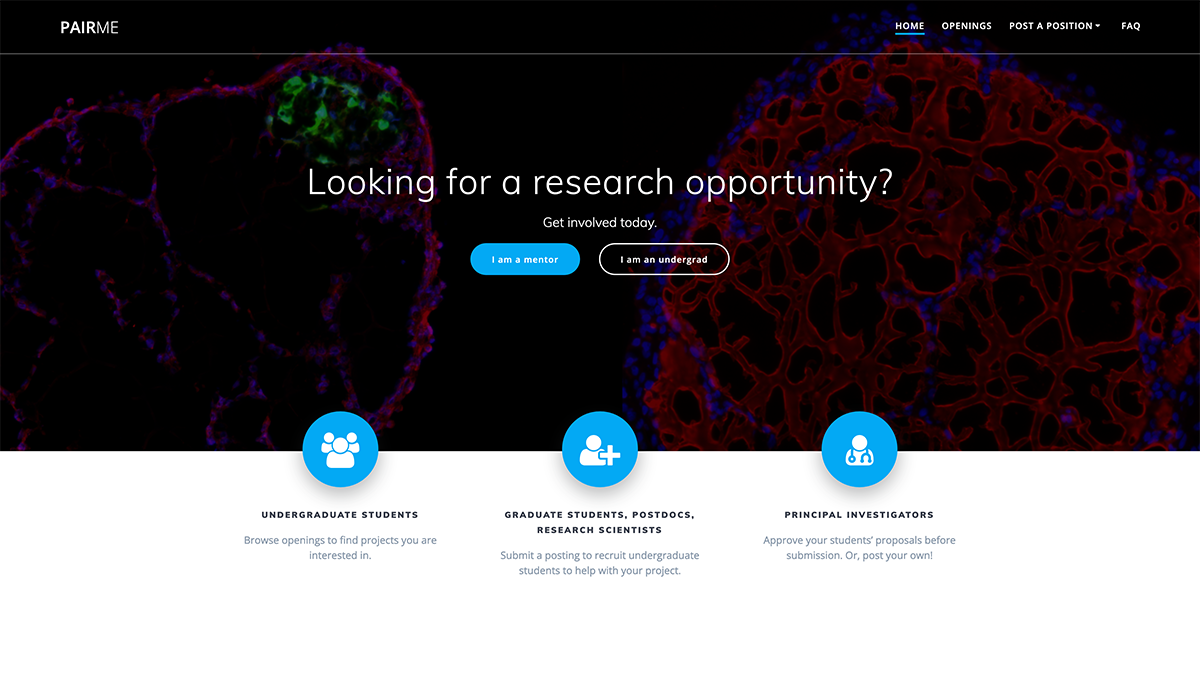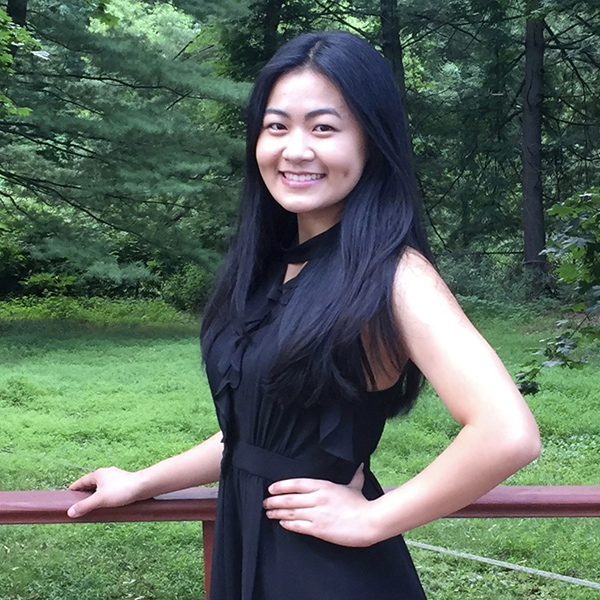A little more than a year ago, Amy Liu debuted the PairMe website, a platform to help undergraduate students find research opportunities and research mentors in the labs of the Wallace H. Coulter Department of Biomedical Engineering at Georgia Tech and Emory University.
The site proved to be a useful tool in a program where three out of four undergraduates participate in some kind of research experience before they graduate.
Coulter BME student Amy Liu built the PairMe website to match undergraduates with research experiences in the Department. Now, she has partnered with the Undergraduate Research Opportunities Program and the Undergraduate Research Ambassadors to expand the site to all majors at Georgia Tech. (Photo Courtesy: Amy Liu)
Now Liu is taking the site even further, expanding it across Georgia Tech to students in every major with the support of the Undergraduate Research Opportunities Program and the Undergraduate Research Ambassadors. Which, truth be told, was what she had in mind all along.
“I quickly realized it would be a lot more feasible to start with a smaller group to conduct a pilot run and refine the process before expanding,” said Liu, who is finishing her biomedical engineering bachelor’s degree this spring. “It made perfect sense for me to start with my own major, since BME has the highest undergraduate research participation rate across majors and we had the additional need for our researchers at Emory to recruit Georgia Tech students to their labs.”
PairMe connects students interested in a research experience with the graduate students, postdoctoral fellows, research scientists, and faculty members who have work and want to mentor undergraduates in their labs. Mentors post opportunities; students sign in with their Georgia Tech credentials and can apply for positions directly through the platform.
Liu knows the value of undergraduate research. Since her first year, she has worked on several projects in Coulter BME Professor Shu Takayama’s lab. In fact, she had been thinking about how to facilitate connections between labs and students since high school. Though she connected with Takayama’s research group fairly quickly, she saw the search didn’t always go as smoothly for some of her fellow students. She also found in talking to researchers that they were interested in ways to more actively recruit students.
With help from former Coulter BME Chair Susan Margulies and the BME Department, Liu launched PairMe in October 2020. In its first year, the platform facilitated nearly 30 connections between Coulter Department students and researchers. Already, 40 additional openings have been posted on the site since PairMe opened to all of Georgia Tech in November.
“This expansion also opens up the potential for students to apply to labs outside their major, which is a key benefit for interdisciplinary projects that would otherwise be unable to reach a specific target audience,” Liu said. “Sometimes what a BME project needs is a computer science student who will be able to complete a machine learning genetics project, for example.”
Latest BME News
Jo honored for his impact on science and mentorship
The department rises to the top in biomedical engineering programs for undergraduate education.
Commercialization program in Coulter BME announces project teams who will receive support to get their research to market.
Courses in the Wallace H. Coulter Department of Biomedical Engineering are being reformatted to incorporate AI and machine learning so students are prepared for a data-driven biotech sector.
Influenced by her mother's journey in engineering, Sriya Surapaneni hopes to inspire other young women in the field.
Coulter BME Professor Earns Tenure, Eyes Future of Innovation in Health and Medicine
The grant will fund the development of cutting-edge technology that could detect colorectal cancer through a simple breath test
The surgical support device landed Coulter BME its 4th consecutive win for the College of Engineering competition.









